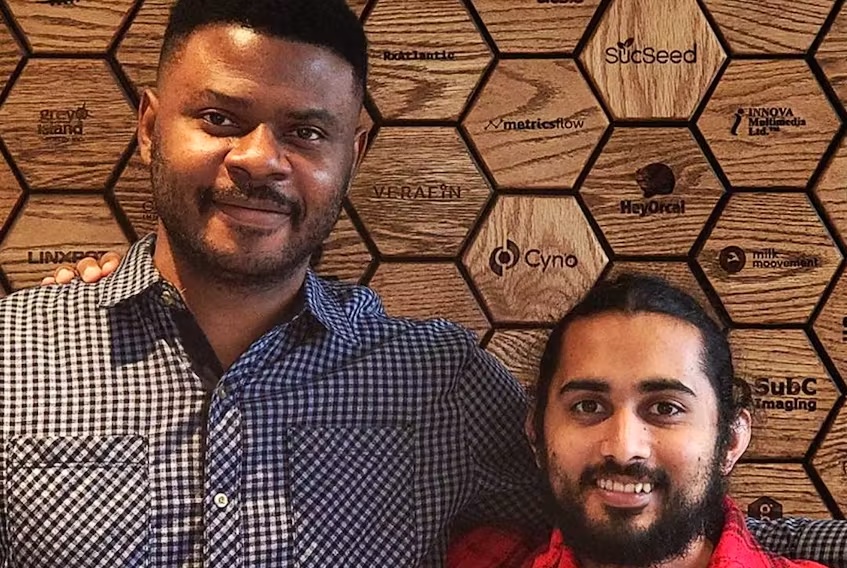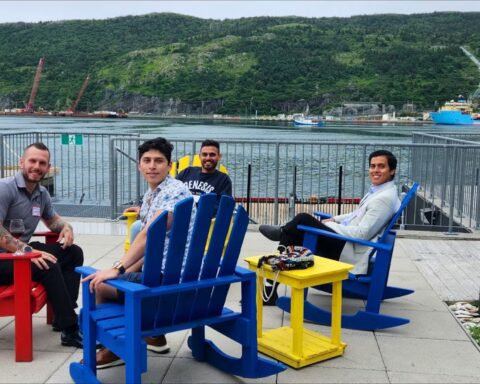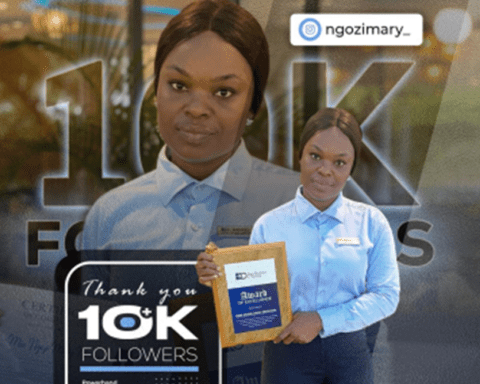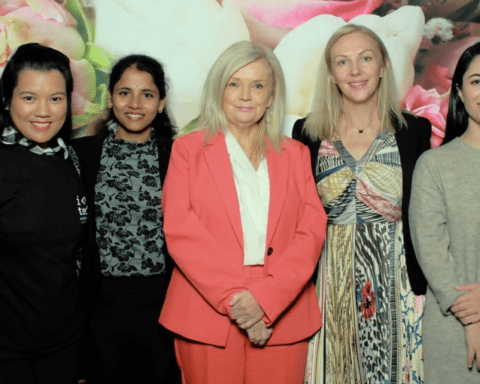According to the Canadian Institute for Health Information, Canada’s senior population — those 65 and older — will rise to 10.4 million in the next 20 years.
That’s a 42 per cent increase from the 7.3 million seniors that Statistics Canada accounted for in 2022.
The four Atlantic Canadian provinces — Newfoundland and Labrador, Nova Scotia, New Brunswick, and Prince Edward Island — reported the highest ratio of seniors to total population in the country, says the Fraser Institute.
In all of them, except P.E.I., the number is over 20 per cent.
However, the aging experience is not always pleasant.
This is something that Kenneth Nwankwo, originally from Nigeria and the co-founder of tech startup Techleft, witnessed first-hand after landing in St. John’s.
Unconventional path
For someone who has found a purpose in helping people age better by giving them the tools to improve their quality of life, Nwankwo’s path began quite unconventionally.
“I was working in the oil and gas sector in Nigeria, and I moved to Canada to further my studies in the field. I found two universities that offered that program, Memorial University and the University of Alberta, and Memorial accepted me first,” Nwankwo recalls.
While completing his coursework, Nwankwo found a job at a long-term care facility in St. John’s, and it was this experience that laid the initial groundwork for Techleft.
Too few caregivers, too little time
“I noticed that there were a lot of areas where improvement could be made,” Nwankwo said, who also realized that compared to what happened in Nigeria — where, in many regions, intergenerational living still prevails — many older Canadians moved into assisted living facilities because their loved ones did not have the time to care for them.
“While there was the hope that caregivers would provide companionship to their loved ones, the reality was that caregivers were much occupied with providing services to the seniors that needed most urgent assistance with things like movement and care,” Nwankwo said.
“Also, there is a shortage of caregivers.”
These observations that ignited the spark for him to look for ways in which technology could be leveraged to solve this issue.
Using tech to solve a problem
Also during his time at Memorial, Nwankwo connected with Genesis, an innovation hub headquartered at the university which helps accelerate promising ventures.
There, he met Viral Galaiya, originally from Kenya, who was already working at the entrepreneurial centre, albeit focused on a robotics project.
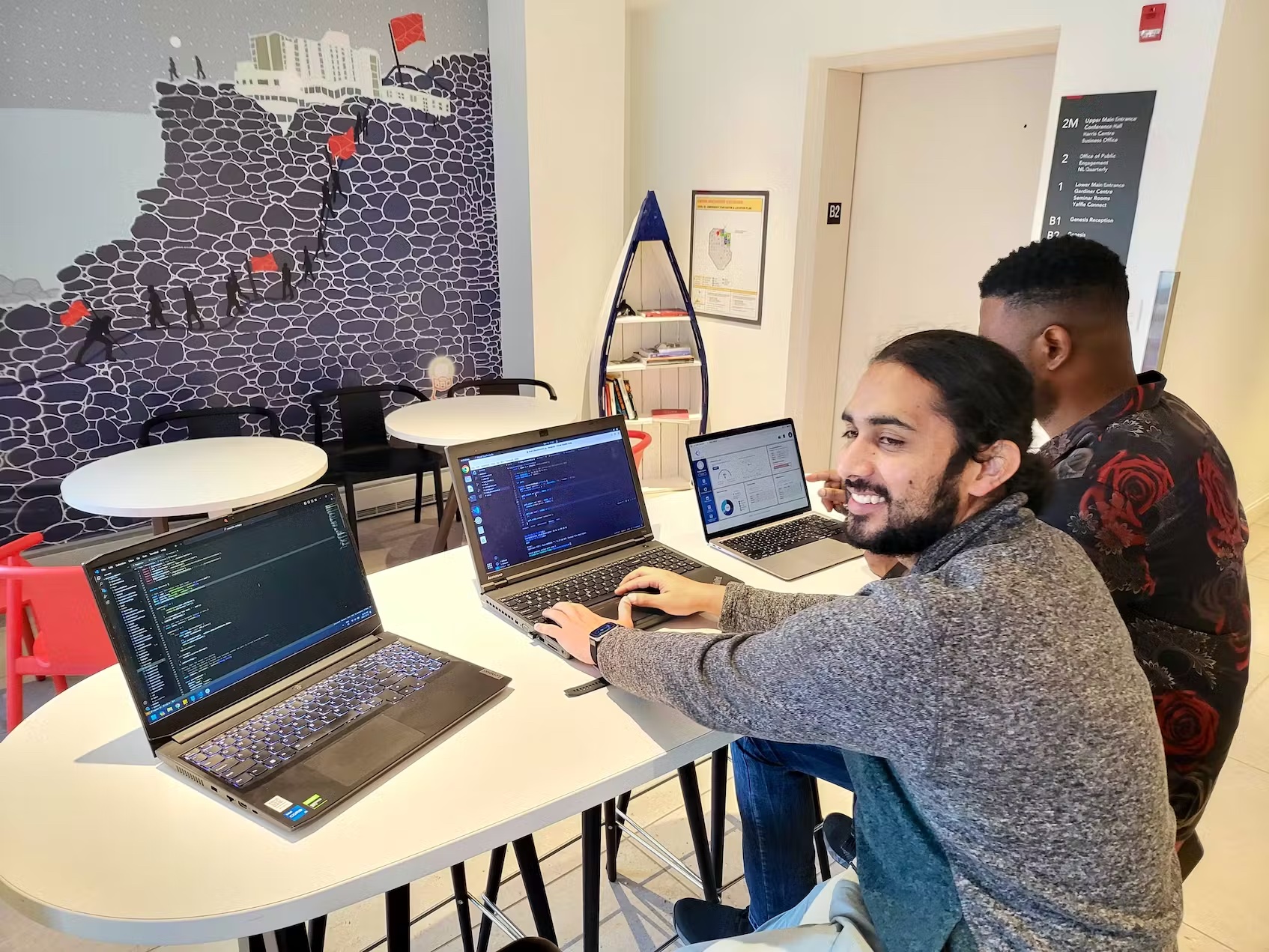
Galaiya, who earned an engineering degree from the University of British Columbia, proved to be the perfect partner for Nwankwo to develop Techleft with, especially because of his technical capabilities.
“I always found technology to be cool by itself, but it is better when it is used to help other people,” says Galaiya.
Unique solution
Techleft’s solution integrates both software and hardware.
On the hardware side, the company has developed a wearable sensor designed to monitor and transmit various data regarding seniors’ physical activity, health, and wellness, as well as recovery patterns in case the person is recuperating from a disease.
These gadget-generated insights are synced with AI-powered software, which provides family members with much clearer visibility into how their loved ones are doing and aids informed decision making.
Techleft’s web application also boasts industry-first and preventative-focused insights on various aspects of end-user’s (seniors’) home space usage, independency level, and more.
It can also be used by in-home care providers, who can rely on the platform to make their jobs more efficient.
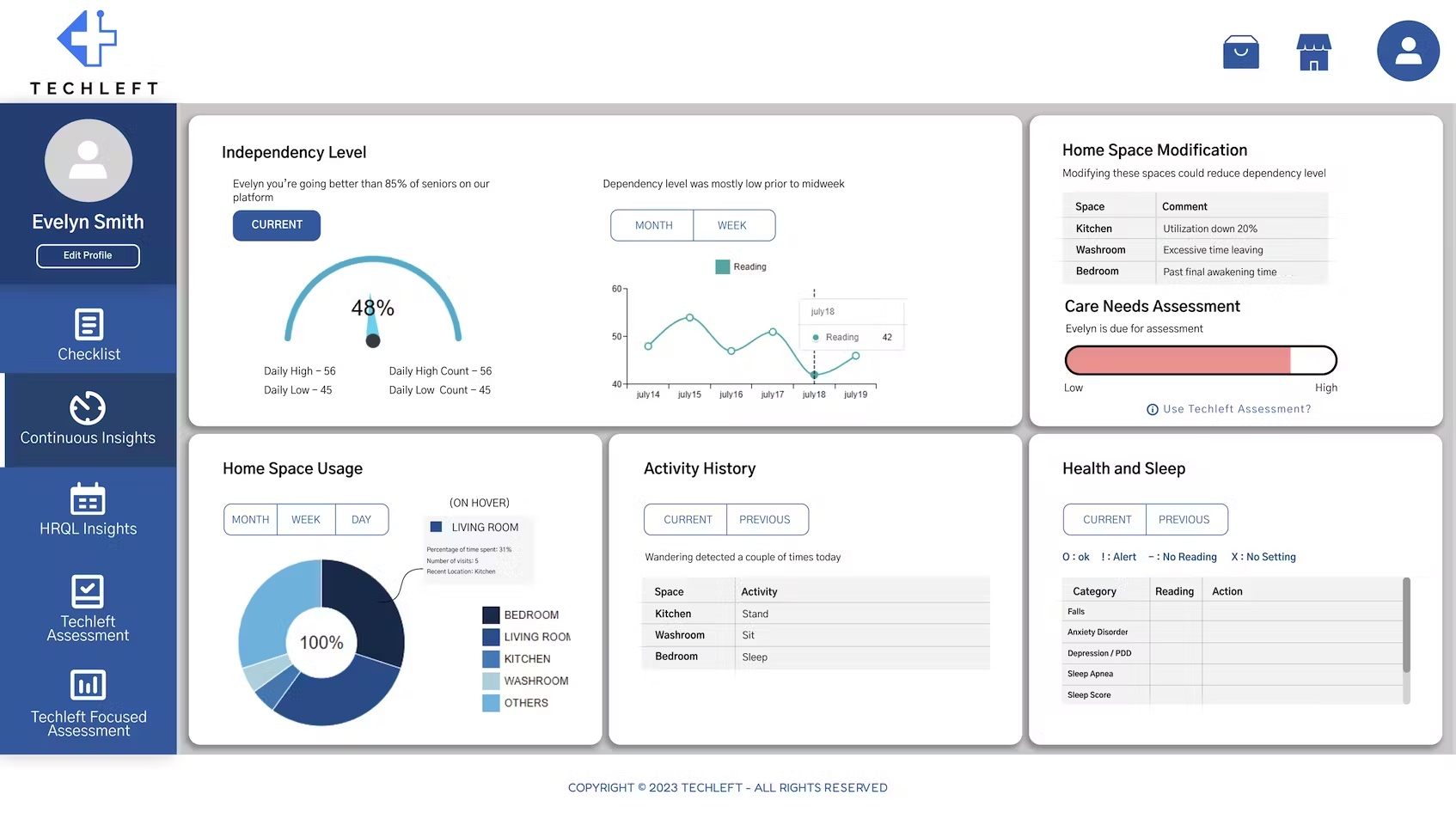
Data to help age in place
“Our approach has many benefits. To begin with, it reduces the need for seniors to move right away into an assisted facility, especially those who are unduly moved,” says Nwankwo.
“Then, it also mitigates caregiver shortage and reduces costs. Lastly, it can improve the aging process, enabling those who would prefer to stay at home to have more tools and resources to do so.”
Nwankwo adds that Techleft, in those cases in which an older adult is ill, goes as far as providing an estimated recovery date based on the information gathered.
The feats the aging population faces in Canada are well-documented. In 2020, the Federal Government launched the Aging in Place Challenge program.
“If given the choice, an overwhelming majority of older adults — over 85 per cent — would prefer to age in place within their own homes and communities,” said Dr. Amaya Arcelus, director general of the National Research Council’s Medical Devices Research Centre.
Not possible for everyone
However, not everyone has the possibility to age in place.
For Christine Karlsson, who was born in Nova Scotia and opted to move to Mexico after retiring, finances were a factor.
“Moving was initially driven by money constraints, after looking for places where I could have a better quality of life for a lower cost, and where I didn’t have to spend as much on having people care for me when I needed it,” says Karlsson.
“And what I found is that liberating my financial resources also resulted in other improvements. I could do more activities, and really enjoy life in places where there were engaging communities.”
Recently, the National Institute on Aging, headquartered at the Ted Rogers School of Management in Toronto, stated that, according to their findings, “Income insecure older adults reported higher levels of social isolation and loneliness when compared to their high-income counterparts,” a recent report said.
Overcoming challenges
Yet, despite the fact that its solution addresses many of the most prevailing aging-related issues, including affordability, Techleft’s path has not been free of challenges.
“The wearables market is easily misunderstood, because people tend to generalize wearables as a wellness device without integrating the distinct resource on the software side of the product,” says Nwankwo, who also mentions that these biases and misunderstandings have hindered Techleft’s prospects of securing long-term funding.
“Some people have assessed our product as if it was for them or as it must benefit them, and made decisions based on that when they are not our audience.”
‘Could completely transform aging’
Nonetheless, Techleft’s potential has already earned its founders some accolades, including the naming of Nwankwo and Galaiya as two of the 20 Under 30 Innovators by Atlantic Business Magazine.
And, despite the roadblocks, the team remains enthused and committed to its long-term vision and the potentially life-changing implications.
“Because we would have so much information, with the power of AI, we could determine many trends about the aging population that are not necessarily known,” Galaiya says.
“We could identify which policies are having an impact and what people are struggling with the most, and based on this, decide what needs to be done next. It could completely transform aging.”
Story and photos produced in partnership between New Canadian Media and SaltWire.
Javier Ortega-Araiza has multiple global experiences as a storyteller and social entrepreneur having travelled to over 30 countries. Now based in Toronto, he is a published author in both English and Spanish."

